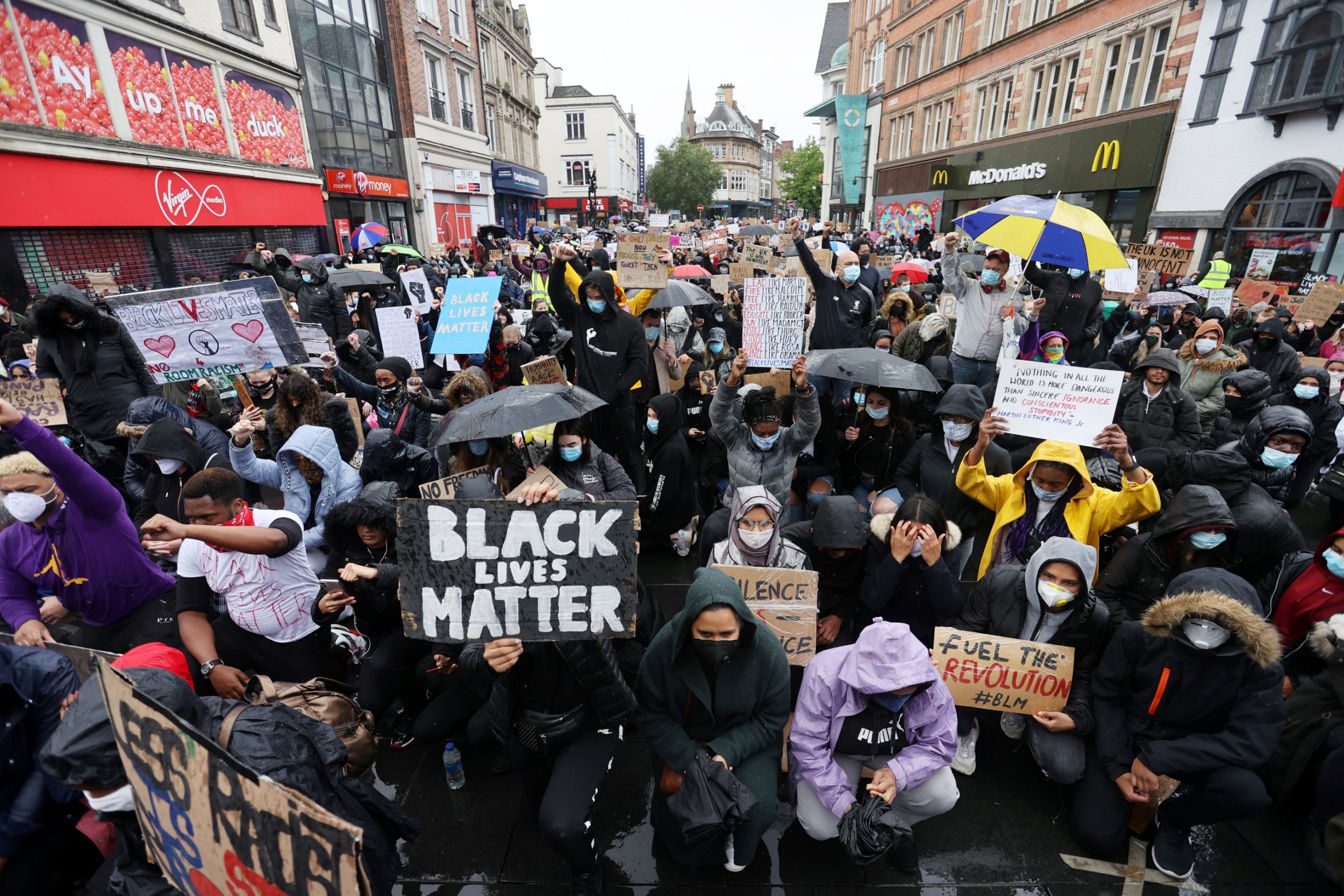Boris Johnson banned protest and no one noticed, not even him
It is surprising that the government seems to have banned protest, especially as the police have not tried to prevent several demonstrations, following the murder of George Floyd in the US, writes John Rentoul


The prime minister and the home secretary said several times last week that they supported the right of people to protest – as long as the rules on social distancing are observed.
What they did not seem to realise, or had forgotten, was that they had legislated to make it an offence to take part in a gathering of more than six people – regardless of social distancing – unless it is for specific purposes, which do not include protest.
It is surprising that the government seems to have banned protest, especially as the police have not tried to prevent several demonstrations, following the murder of George Floyd in the US.
But the Health Protection (Coronavirus, Restrictions) (England) Regulations 2020, which came into effect on 1 June, seem clear. They say: “No person may participate in a gathering which takes place in a public or private place … outdoors, and consists of more than six persons.” There is then a list of exceptions, for members of the same household, funerals, elite athletes, work, legal proceedings, education and so on. The list is finite, rather than giving examples of the kind of things that are excluded, and it does not mention protest, demonstration or free expression.
Some lawyers argue that the regulations would have to be read by the courts as being compatible with the Human Rights Act, and its rights of free association and freedom of expression. Others have suggested that the demonstrations consist of several separate groups of six people. But it doesn’t seem right to rely on legal sophistry to defend essential freedoms.
The government’s messages were further confused on Friday, when Matt Hancock, the health secretary, and Priti Patel, the home secretary, asked people not to go on demos this weekend, without suggesting that it might be against the law to do so. As it turned out, the rain did more to discourage people than they did.
Perhaps we should be grateful that the assumption of a right to protest is so deeply ingrained that few people have noticed that the government appears to have abolished it – including the government itself. Even Liberty, the civil liberties group, seems rather neutral about the law, saying merely: “There is currently no exception for protests. So if you attend a protest you may be at risk of arrest.”
But the police have been put in an impossible position by the passage of a law that few people even know about, and I find it alarming that there should be any doubt about the right of people in this country to join together in peaceful (socially distanced) protest.
Yours,
John Rentoul
Chief political commentator
Join our commenting forum
Join thought-provoking conversations, follow other Independent readers and see their replies
Comments